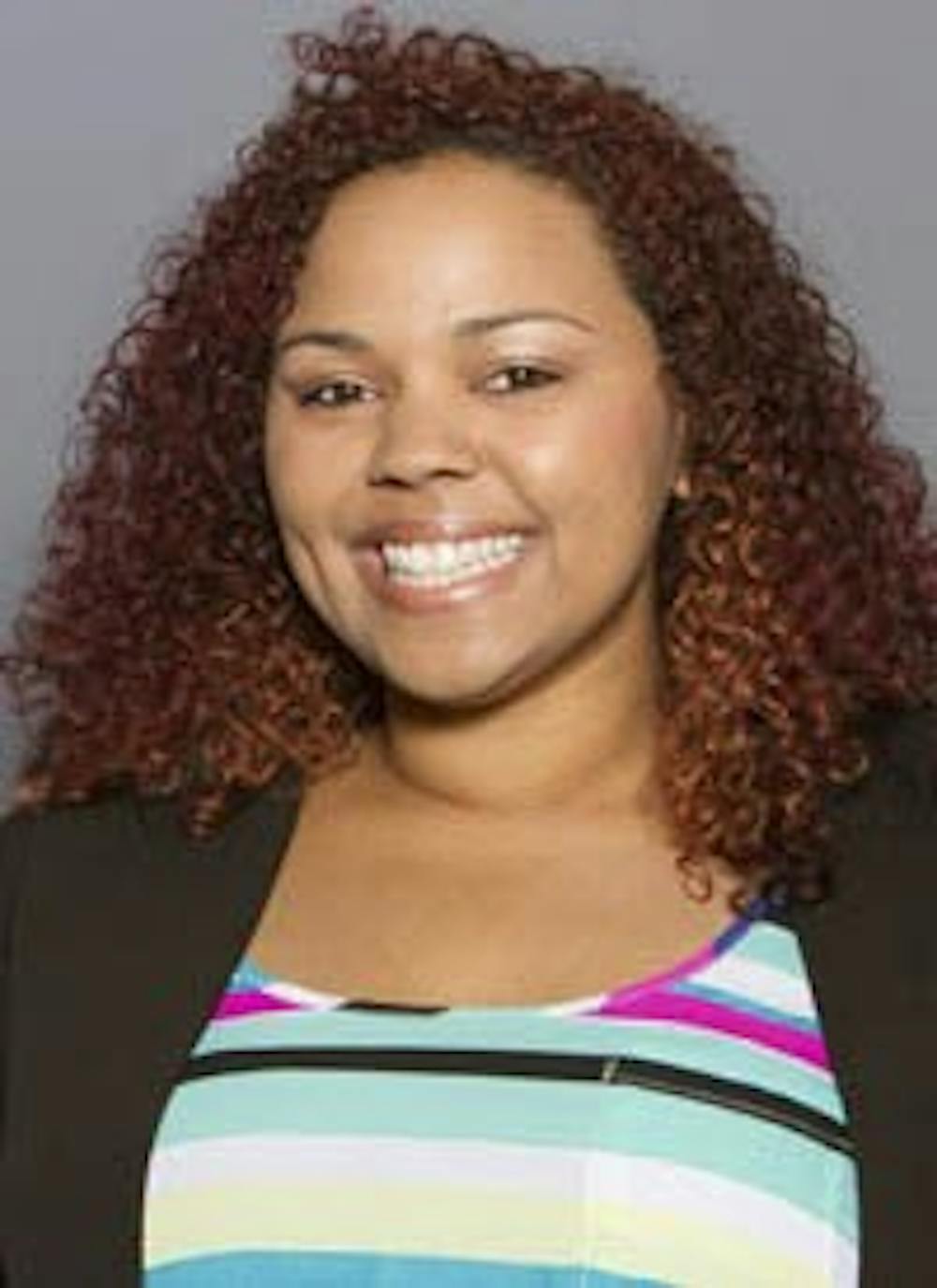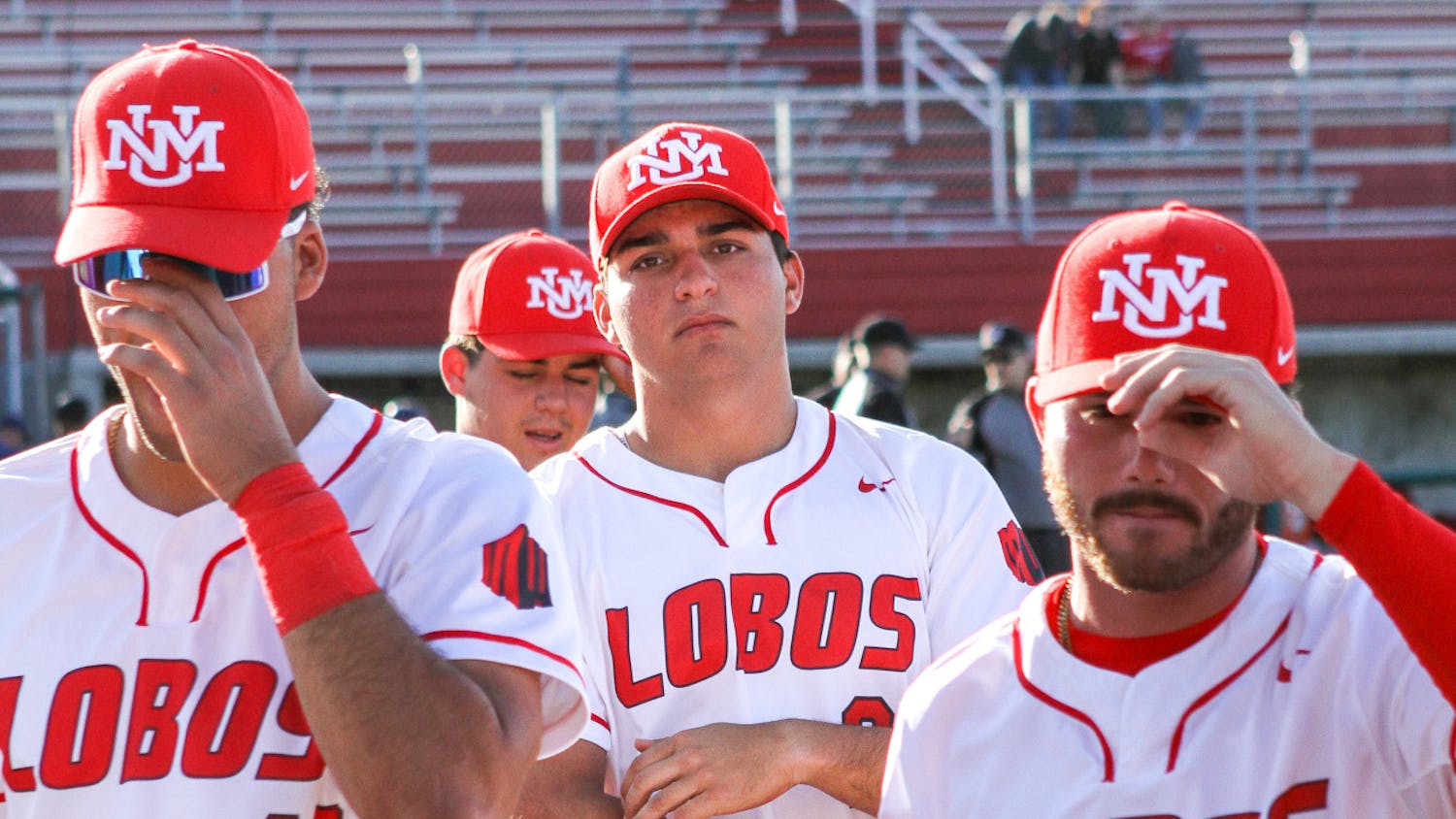A recent academic award for the New Mexico men’s basketball team may have had Lobo fans remembering some of the issues and the start of last season and pondering the simple question — how?
Former head coach Craig Neal said he was disappointed in several things early on in the 2016-17 season, prompting him to shake up the starting lineup. He cited some of the issues having to do with effort on the court but also said there were players that were failing to meet expectations in the classroom.
The players answered the academic call, setting a high standard for others to follow along the way. The team picked up the pace to secure a cumulative grade point average that reached 3.05.
Tim Williams, who was a senior last season, said the players realized that if they didn’t take care of things in the classroom, there wouldn’t be basketball. He said they decided to really buckle down to get things corrected.
The former Lobo forward also said student success specialist Keyana Smith deserves much of the praise for getting the players to the finish line.
“Keyana, our advisor, did a great job of helping everybody — making sure we didn’t miss anymore assignments and helping us study for test and things like that,” Williams said. “She’s been great for us.”
Williams was one of four student-athletes named to the 2016-17 National Association of Basketball Coaches (NABC) Honors Court for the Lobos, as UNM paced the field with four players earning the distinction.
A release said the honorees included Williams, Adam Cumber, Conner MacDougall and Anthony Mathis on the heels of the team earning its second straight NABC Team Excellence Award.
The minimum requirement to receive the award is a team GPA of 3.00; everyone must do his part since the margin for error is so small.
It appears the players weren’t necessarily facing eligibility issues, rather a failure to meet a high standard of excellence had been set as the precedent for the team.
Smith said she feels it is important to address concerns before they become a potential hazard that is too late to correct.
“I think it stemmed from a culture of higher standards, and I think the statement was made based on the standards,” she said. “We have a standard that you get B’s and A’s.”
Get content from The Daily Lobo delivered to your inbox
With her attention focused on helping the team start its quest to garner the award for a third straight year, Smith took the time to participate in a Q&A about the work that goes into getting such results.
Q: What kind of things do you do for the team to put the players in position to be successful?
A: We do a lot of stuff that is structured. They are so used to having a structured lifestyle in basketball, that they ultimately need that structure in academics. They have required study hall times where they have to meet with me throughout the week. They come as a team together and work in the lab.
They pick up their folder when they first come in and check in with me. We go over what they have that day, what grades they’ve gotten back and once (that) is figured out, we go to the lab. I’m there to help if they need something explained on an assignment. Before they leave and turn in their folder, they have to also check out.
We kind of go over it together so that we are both on the same page. If they started working on a paper and still have more to do to compete the assignments, it lets me know to follow up with them and give them a little reminder…keeping everything structured.
Q: What do you think the biggest challenge is (about your job)?
A: I think coordinating (when the team is on the road) would be the biggest challenge. Sam (Logwood) sometimes jokes, “Be careful, she’ll have you do something that’s due in May.” My biggest stress is to always have them work ahead.
I have a poster on my wall that says, “Due tomorrow does not equal do tomorrow,” because I always want everything done early.
We try to get as much as we can done before they go on the road, but sometimes it’s just not possible. They still have practice, they still have class. But we don’t get a free pass just because they are traveling, so we still have to try to work out fitting homework into being on the road.
Q: Do those two go hand-in-hand? Do you think academic success translates to better play on the court?
A: I think it does. At least for me — because I played softball — if I’m trying to think about getting my swing back, the last thing I want to do is also think about being up until 1 a.m. writing a paper.
If you finish the school work early and that next day you just have to focus on your sport, I feel like that gives someone a clearer head.
Q: Is there somebody that really stood out as a leader to rally the rest of the team to achieve that academic goal?
A: I think a lot of the older players relayed the message that “the more you get done now as an undergraduate, the easier the upper division is.” We have a senior now that only has electives left because he took care of business his first three years.
Q: What will the game plan be for you with the team having so many new faces on it?
A: Initially, you think about the new people and think, “Wow.” And we kind of add different things to continue to keep improving, but the even new guys don’t have to get used to anything — this is all they know.
You’re not necessarily breaking old habits. They are kind of eager to start the season and jump right on it, and the older guys are already used to it, so the new guys kind of pick up on that.
Q: How much easier does it make things when the head coach is so emotionally invested in seeing his players getting good grades?
A: I always relate it to when your parents tell you the same thing over and over again, and you’re like, “Okay, I heard you,” but if an outsider tells you, then it snaps a little bit.
Coaches aren’t outsiders, but it is a fresh voice and an extra motivation, because I don’t control playing time. At the end of the day, if coach tells you to do the paper it’s a really big thing, because he’s the one calling the shots.
Q: Was there anything else that you would want people to know about?
A: People kind of have a stigma that the players are just an athlete that is there to play a sport, but I think that what they do in the classroom shows they can be successful in both. I think (the student-athletes) find pride in the fact that they achieve something that others don’t.
Williams just signed his basketball contract (with Atomerőmű SE, a team that plays in Hungary). There are not a lot of students that can say they were an economics major…and maintained a high GPA…and played a sport…and now signed a pro basketball contract.
Smith said there are some new wrinkles that she is excited to implement. She said she knows what those are already, but hasn’t shared the ideas with the players just yet. No need to worry though — she said the same basic structure will remain.
And maintaining that structure seems to be an integral part of success and should serve the student-athletes well their collegiate playing days are over.
Robert Maler is the sports editor for the Daily Lobo. He primarily covers football and men’s and women’s tennis. He can be reached at sports@dailylobo.com or on Twitter @robert_maler.






